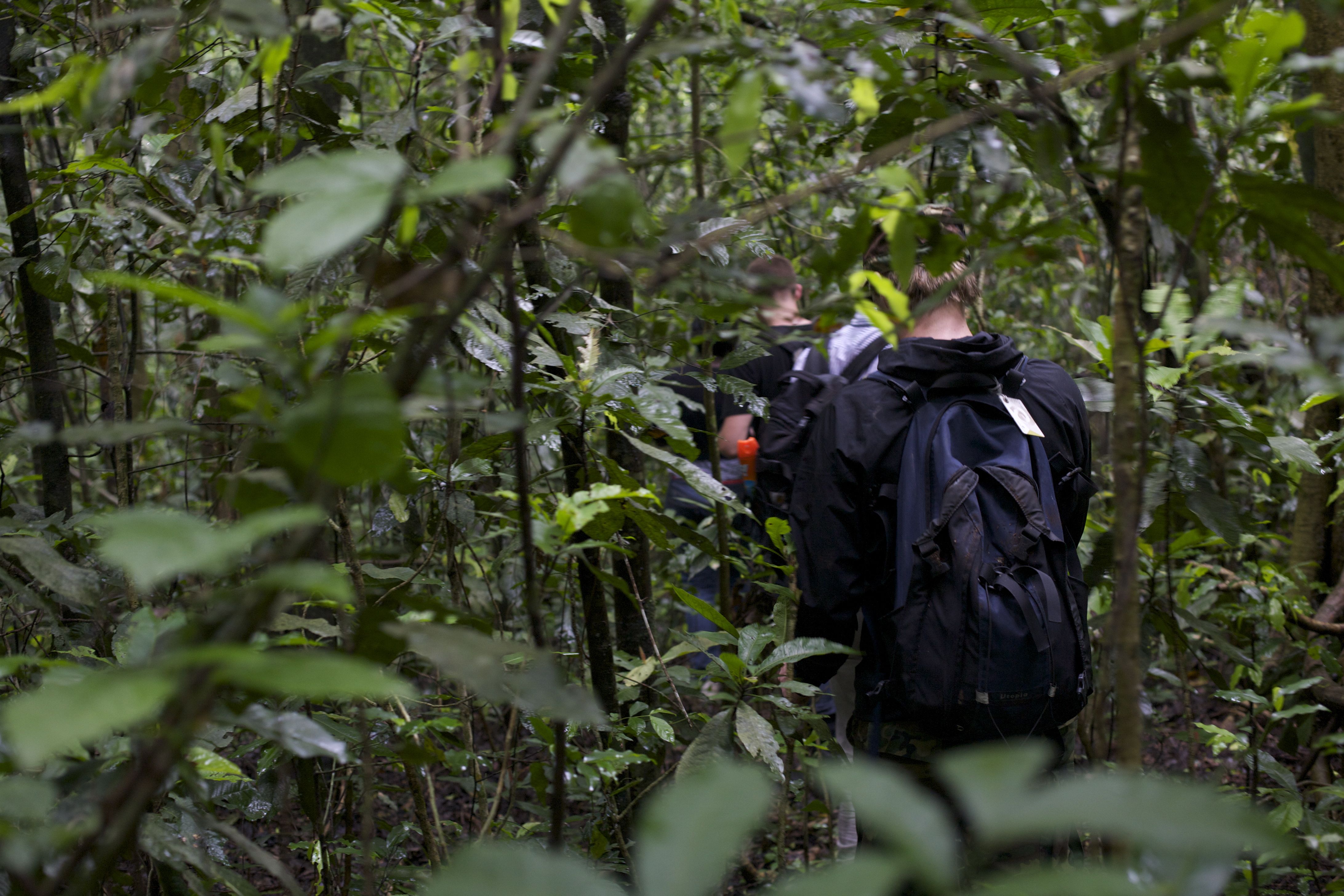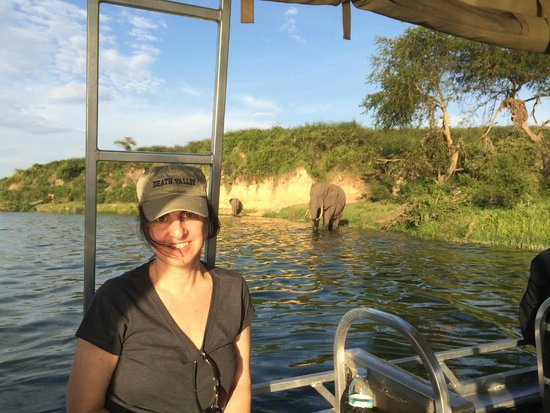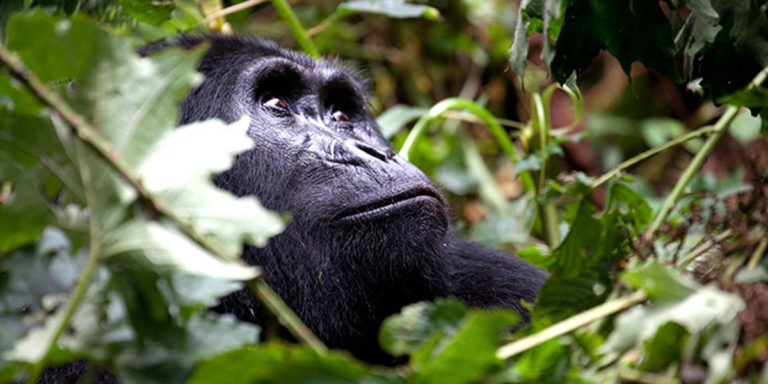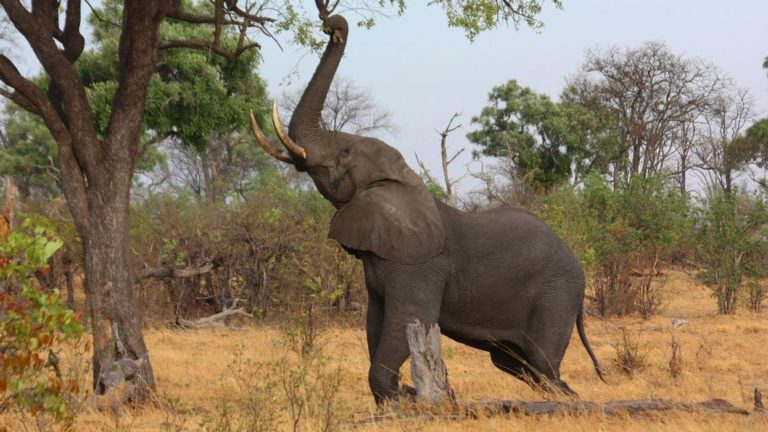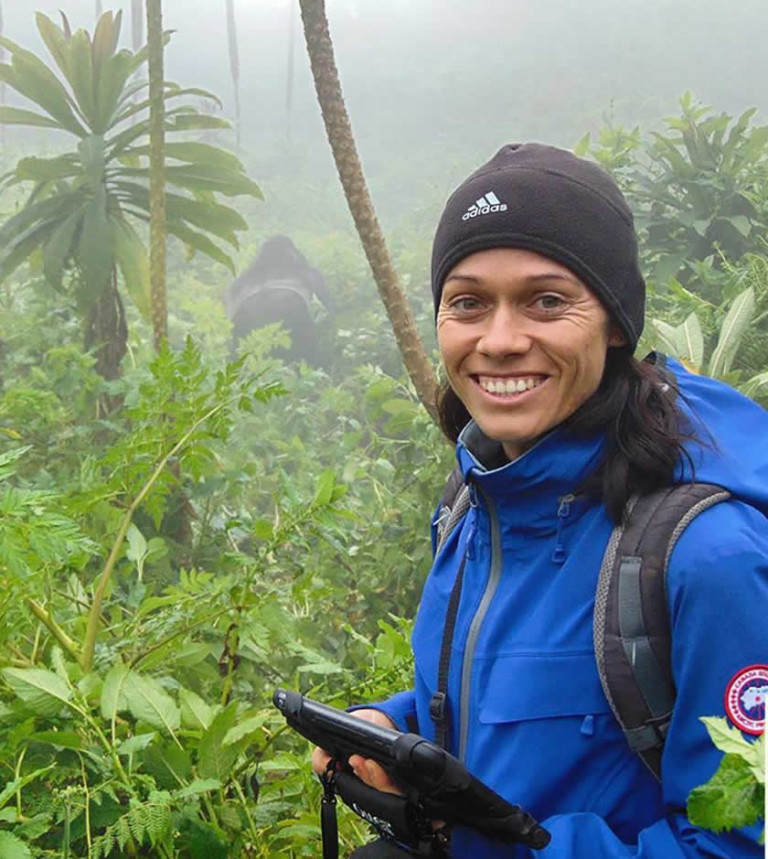A Guide to Chimpanzee Tracking in Kibale
A Guide to Chimpanzee Tracking in Kibale Forest National Park – Uganda Primate Safaris
Kibale Forest National Park is one of Uganda’s most spectacular tropical rainforest parks; best known as the primate capital of the world. Founded in 1993, Kibale forest features over 13 primate species including over 1500 wild chimpanzees. When it comes to chimpanzee tracking, Kibale Forest National Park features on the top list as one of the most exceptional and sought after tourist destinations by primate lovers. Besides chimpanzees, there are also other apes which help to boost primate walks in the park some of which include the localized Red colobus, endemic Uganda Mangabey, the rare L’Hoests monkey, olive baboons, pottos, bush baby, Red tailed monkey, Black and white colobus monkey, blue monkey among others.
The 795 square kilometer protected area also inhabits large animals like the forest elephants, Buffaloes, Giant forest hogs, antelopes, bush pigs, 3 duiker species and 2 otter species. For birders, there are over 350 exceptional bird species including the 2 pitta species-African and green breasted pittas, noisy hornbills and African grey parrots and many more. This means that chimpanzee encounters in Kibale National Park go hand in hand with some birding safaris, you only need to be keen and you will be able to sight at the notable forest birds. Kibale Forest National park straddles between Kabarole and Kibale districts about 320 kilometers by road, Western Uganda. It features among the very few precious tropical rain forests that still exist in Africa.
A 6 hour drive conservation area inhabits the biggest portion of wild chimpanzees compared to other protected areas in East Africa and this makes it the perfect place for you to realize your dreams on Uganda safaris. For your chimpanzee safaris in the park, the permits cost $150 per visitor (foreign non residents), $100 for foreign residents and shs.100000 for East African residents. In the months of March April and November, promotional permits are sold at $100 for foreign non residents, $75 for foreign resident and shs.75000 for foreign residents. For Chimpanzee Habituation Experience, permits are obtainable at $220 for foreign non residents, $150 for foreign residents and shs.70000 for East African resident.
While at the forest, they can be heard before they are sighted due to their scream pant hoots and barks that are used by the tour guides to locate them in the jungle. Visitors have only one (1) hour of face to face encounter with these fascinating primates. For interested visitors in chimpanzee safaris in Kibale National Park, they can opt for chimpanzee tracking in the morning or in the afternoon and alternatively, take an entire day on Chimpanzee Habituation Experience (CHEX). Four chimpanzee communities are set for tourism and research purposes in Kibale National Park; first Kanyawara for research and it features 50 to 60 individuals, the second community is at the heart of the park and comprised of more than 200 chimpanzees, the 3rd community is found in Kanyanchu and this is where tourism in the park is wholly centered, the forth community is found in Sebitoli and it is also set for research.
Tracking chimpanzees is a lifetime experience that visitors need not to miss while in any safari in Uganda. In Kibale, this incredible adventure is conducted in Kanyanchu Visitor Center and it begins at 7:00am with briefing by park official and at 8:00am visitors hit on the jungle to search these impressive creatures. Usually, visitors take about 2 to 3 hours tracking these wild creatures. Strictly, 6 (six) tourists are allowed to track chimpanzees which is why we always encourage our visitors to book in advance for their safari dates.
Chimpanzee tracking rules and regulations in Kibale National Park
If Kibale National Park is your next dream destination, the following are some rules and regulations while in chimpanzee safaris.
First, you are required to keep a distance of 8 meters away from these creatures. Chimpanzees like any large ape are susceptible to human infectious diseases. They share about 98% of their DNA with humans. For visitors with flue or diarrhea, you may not be permitted to go and track.
Don’t eat next to the chimpanzees
Visitors under the age of 12 are not allowed to go for chimpanzee tracking
Flash cameras are prohibited for this safari, if your camera has a flashlight; you are advised to turn it off while taking photos.
Chimpanzees require maximum freedom and this means they need not to be irritated once you are in the forest.
You have only 1 hour to be with the chimpanzees
Only people above 15 years are allowed to track chimpanzees
Chimpanzee tracking is strictly for only 6 people in a group.
What to carry on chimpanzee safari in Kibale National Park
You will need light weighted hiking shoes that will help you while climbing on the steep and slippery slopes in the park; long sleeved shirt/T-shirt to protect you from the prinking thickets, chimpanzee tracking permit, rain jacket since the weather is not easy to be predicted, bottle of water and some snakes, a pair of binoculars since chimpanzee safaris are not only for viewing chimpanzees but also some forest bird species, a good camera with a quick film of about 400 to 800 ASA and don’t forget to carry extra batteries incase the one in the camera runs short of power.
Characteristics of chimpanzees
An adult chimpanzee male weighs between 35 and 70 kilograms with height of about 3 meters and an adult female weighs around 26 and 50 kilograms with height of 2 and 4 feet. Their life expectancy is at 40 years and those in the captivity go up to 60 years. Like mountain gorillas, chimpanzees are among our closest cousins, sharing at least 98% of their DNA with humans. They are sociable, intelligent, communicative and they can use tools especially rocks for crushing nuts, empty pods for hollowing out water as well as sticks for catching termites from their hole; these features position them among the most incredible primate species in the wilderness. They live in communities of about 10 to 100 individuals. They are able to baby sit each other’s young, kiss, groom one another and hold hands. The young ones can start living individually at 4 years. They are also aggressive and unsociable especially when irritated just like any wild species. Despite the fact that they spend most of their time on the ground, they usually feed and make their nests up in the trees. Their diet differs composing of leaves, fruits, seeds and flowers.
When to go to Kibale National Park for chimpanzee tracking
Chimpanzee tracking in Kibale National Park is an all year round adventure however the best time to visit the park is in the dry season that starts from the months of June to September and December to February. March, April, May and November mark the low/wet season and at times it is hard to track these primates but it is ideal for bird watchers.
How to reach Kibale National Park
By road:
You can take the Northern route-it is shorter and you can connect very fast. It covers almost 300 kilometers from Kampala to Fort Portal and then 36 kilometers to Kanyanchu visitor center. As well, you can go through Kampala-Fort portal-Sebitoli or Fort Portal-Kamwenge-Kanyanchu.
Lodges in Kibale National Park
The notable lodges range from luxury to mid-range/budget;
Luxury lodges include; Ndali lodge, Crater Safari Lodge, Kyaninga Lodge, Papaya Lake lodge, primate lodge just near Kanyanchu visitor center. The mid-range lodges include the Chimpanzee forest guest house, Kibale forest camp, Mountains of the Moon hotel in Fort Portal town-26 kilometers up to the park and many more.
In conclusion, chimpanzee tracking is the most fascinating primate adventure that is worth including while in Uganda safaris. Kibale National Park has the largest number of chimpanzees that offer primate enthusiasts a chance to catch a glimpse of these magnificent species while in the wild. With your permit at hand you get 95% chance to view these amazing apes in the jungles of Kibale.

